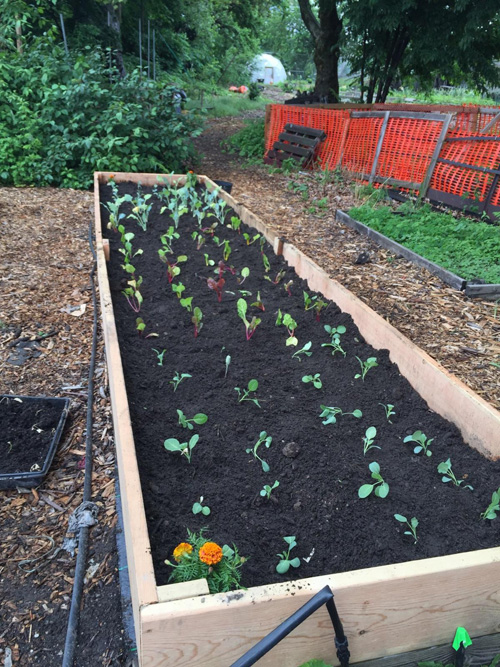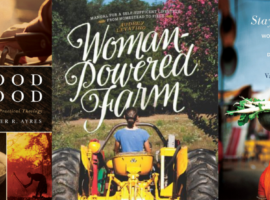At WhyHunger we strive for cross-collaboration among programs, understanding that as we build a movement to end hunger and poverty it is critical for domestic and international organizations to build solidarity. This often involves finding a way for food justice and food sovereignty organizations to build relationships and learn from each other. As a staff member who helps facilitate these encounters I often learn a lot, but I don’t always think about the opportunity I have to engage with partners personally as a fellow farmer.
I am an urban farmer at La Finca del Sur Urban Farm in the South Bronx in New York City. We are a women of color led farm that grows healthy food for ourselves and our community in a neighborhood where outside forces and corporations have flooded our neighborhood with cheap, unhealthy processed food. Our name — La Finca del Sur — translates to Farm of the South which is referring to multiple Souths. Most of us live in and around the South Bronx; most of us have a familial heritage in the Global South; and lastly, South is in solidarity with the women of color who make up the majority of farmers in the Global South. The reality of who farms in the world is not often the narrative that is highlighted, and part of our work at La Finca del Sur is to reframe that narrative and center the power around the people who grow, nourish and care for families and communities all over the world.
In June I had the opportunity for my WhyHunger and La Finca worlds to collide, when I showed one of our Global Movements program partners, Nelson Mudzingwa from the Zimbabwe Smallholder Organic Farmers Forum (ZIMSOFF), around La Finca del Sur during his trip to the US. Nelson said this would be an opportunity to exchange knowledge between farmers. My first thought was how could we, urban farmers who have only been growing for 7 years, possibly have something to teach someone who has been farming much longer and more intensely than we have? But sure enough, as popular education theories state, everyone is an expert in their own experience. We were able to share our method of planting in raised beds which, as Nelson commented, could be a new way for ZIMSOFF farmers to grow root vegetables (they currently use a different technique using potato sacks to grow root vegetables). We have to use raised beds because New York City soil is contaminated, but this practice lends itself to other uses. I learned about different integrated pest management techniques and how using almost any plant that has a strong odor has the potential to repel pests for other plants when they are grown in the same plot.

What stood out more than practical techniques was our conversation about the spiritual and cyclical aspect of farming. How our ancestors continue to help us because as indigenous farmers they worked the land and even in their death their bodies provide our soil with nutrients. In New York City that link has been broken because our soil is so contaminated with environmental pollutants that we can’t plant directly in it. That sickness of the soil, as Nelson put it, and the loss of the connection to the land is mirrored in the sickness in our lives in the form of chronic disease and health disparities and the loss of connection to growing our own food.These are an extension of our unhealthy food environment. And as we try to remediate the soil and go back to growing our own food we reconnect to our culture, our ancestors and our health.
My encounter with Nelson re-emphasized that growing food in each of our corners of the world using traditional organic practices are in and of themselves acts of resistance and self-determination. For ZIMSOFF, the struggle is to maintain sovereignty of their land, water and seeds. For La Finca del Sur, it is to disrupt the unhealthy food environment and reconnect to our culture. What’s so powerful when farmers come together is that we find commonalities in our truths that growing is about so much more than food, its life.





